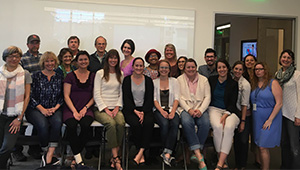Lessons in screening for adverse childhood experiences (ACES)

KPWHRI’s Center for Community Health and Evaluation proposes 5 necessary elements based on its recent work with partner programs.
Trauma early in life can have a significant impact on an individual’s health and wellness throughout their life. As a result, health care organizations are beginning to focus on providing more trauma-informed care, where all parties involved recognize and respond to the impact of traumatic stress and resilience on children, caregivers, and service providers.
“Screening for adverse childhood experiences (ACEs) in pediatric clinical settings promotes early intervention and can be a tangible entry point for organizations interested in providing trauma-informed care,” according to Lisa Schafer, MPH, senior evaluation and learning consultant at the Center for Community Health and Evaluation (CCHE) at Kaiser Permanente Washington Health Research Institute.
CCHE is the evaluation partner for 2 programs that are implementing ACEs/trauma screening in pediatric settings:
- The National Pediatric Practice Community (NPPC) on ACEs Screening is a pilot program of the Center for Youth Wellness in San Francisco. The pilot is aimed at supporting health care professionals in applying ACEs and toxic-stress science to pediatric practice and in shaping the field of trauma-informed medicine. The NPPC pilot provides training, technical assistance, and practice coaching in pediatric ACES screening to a small group of medical practices across the country.
- The Resilient Beginnings Collaborative is a partnership between Genentech Charitable Giving and the Center for Care Innovations that supports seven safety net organizations in the San Francisco Bay Area in strengthening their capacity to address childhood adversity and promote resiliency in pediatric care.
CCHE recently compiled 5 important lessons from its evaluation of these programs into a brief that can be found here.
“We believe learning from these two programs can provide guidance to professionals of all types who are interested in or already implementing ACEs screening,” says Maggie Jones, MPH, director of CCHE.
To learn more about CCHE’s work on ACES, contact Lisa.M.Schafer@kp.org.
CCHE Team

CCHE is known for our customized evaluations
Our team’s expertise spans the fields of public health, economics, anthropology, health administration, organizational development, public policy, epidemiology, information science, urban planning, education, and communications.
Center for Community Health and Evaluation

CCHE designs and evaluates health-related programs and initiatives throughout the United States
Our mission is to improve the health of communities with collaborative approaches to planning, assessment, and evaluation.


